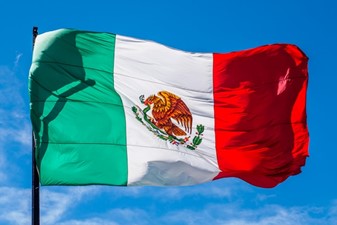The trade relationship between the United States and Mexico is one of the most significant and dynamic in the world. With a shared border stretching over 1,900 miles, these two neighboring countries have deep economic ties that profoundly impact international business expansion strategies. In this article, David Farca of Arizona explores the complexities of US-Mexico trade relations and how they influence opportunities and challenges for businesses looking to expand internationally.
Historical Context
The trade relationship between the US and Mexico has evolved significantly over the years. The implementation of the North American Free Trade Agreement (NAFTA) in 1994 marked a turning point, fostering greater economic integration between the two countries and Canada. NAFTA eliminated most tariffs and trade barriers, leading to a surge in cross-border trade and investment.
In 2020, NAFTA was replaced by the United States-Mexico-Canada Agreement (USMCA), which modernized and updated the trade agreement to address new challenges and opportunities in the digital age. The USMCA preserves many aspects of NAFTA while introducing new provisions related to intellectual property, labor rights, and environmental standards.
Key Aspects of US-Mexico Trade Relations
Supply Chains and Manufacturing: Mexico has emerged as a crucial manufacturing hub for US companies, particularly in industries such as automotive, aerospace, electronics, and medical devices. Proximity to the US market, lower labor costs, and favorable trade agreements make Mexico an attractive location for production and assembly operations.
Agricultural Trade: Agriculture is another significant component of US-Mexico trade relations. Mexico is a major importer of US agricultural products, including grains, meat, dairy, and fresh produce. Conversely, Mexico exports fruits, vegetables, and other agricultural goods to the US, creating a balanced and mutually beneficial trade relationship.
Energy Integration: The energy sector plays an increasingly important role in US-Mexico trade relations. Mexico is a significant importer of US natural gas, which is used for electricity generation and industrial applications. Additionally, collaboration in renewable energy projects, such as wind and solar, presents opportunities for cross-border investment and cooperation.
Cross-Border Investment: Bilateral investment between the US and Mexico is substantial, with companies from both countries investing in each other’s economies. US companies have established manufacturing facilities, distribution centers, and service operations in Mexico, while Mexican companies have expanded into the US market through acquisitions, joint ventures, and greenfield investments.

Impact on International Business Expansion
The close economic ties between the US and Mexico have several implications for businesses considering international expansion:
Market Access: Access to the US and Mexican markets through trade agreements like the USMCA provides businesses with opportunities to reach a larger customer base and diversify their revenue streams. Companies can leverage established supply chains and distribution networks to penetrate new markets more efficiently.
Cost Efficiency: Manufacturing in Mexico can offer cost advantages, including lower labor costs, reduced transportation expenses, and streamlined logistics. By establishing production facilities or sourcing components from Mexico, businesses can improve their competitiveness and profitability.
Risk Mitigation: Diversifying operations across multiple countries can help businesses mitigate risks associated with political instability, economic volatility, and natural disasters. By expanding into Mexico, companies can reduce their dependence on any single market and enhance their resilience to external shocks.
Talent Pool: Mexico’s young and growing population offers a skilled labor pool for businesses seeking to expand their operations. With a focus on education and workforce development, Mexico is increasingly producing engineers, technicians, and other professionals with expertise in various industries.
Innovation and Collaboration: Collaboration between US and Mexican companies fosters innovation and technology transfer, driving competitiveness and growth. By partnering with Mexican counterparts, businesses can access new ideas, technologies, and markets, leading to mutual benefits and synergies.
Challenges and Considerations
While US-Mexico trade relations offer numerous opportunities for international business expansion, there are also challenges and considerations to navigate:
Regulatory Compliance: Businesses expanding into Mexico must navigate complex regulatory frameworks, including labor laws, tax regulations, and customs procedures. Working with local legal and regulatory experts is essential to ensure compliance and mitigate legal risks.
Cultural Differences: Cultural differences between the US and Mexico can impact business operations, communication, and relationship-building. Understanding and respecting cultural norms and practices is crucial for building trust and fostering successful partnerships.
Security Concerns: Certain regions of Mexico may face security challenges related to organized crime and violence. Businesses must conduct thorough risk assessments and implement appropriate security measures to protect their employees, assets, and operations.
Infrastructure and Logistics: While Mexico has made significant investments in infrastructure, challenges such as inadequate transportation networks and bureaucratic delays can hinder logistics and supply chain efficiency. Businesses should carefully assess infrastructure capabilities and plan accordingly.
Conclusion
US-Mexico trade relations play a pivotal role in shaping opportunities and challenges for businesses expanding internationally. With a history of economic integration and cooperation, the US and Mexico offer a dynamic and vibrant business environment for companies seeking to tap into new markets, access cost-effective manufacturing solutions, and drive innovation through collaboration. By understanding the complexities of US-Mexico trade relations and navigating the associated challenges, businesses can position themselves for success in the global marketplace.
